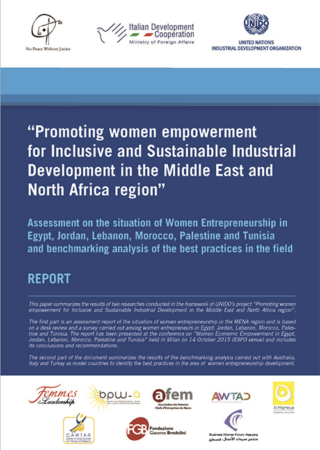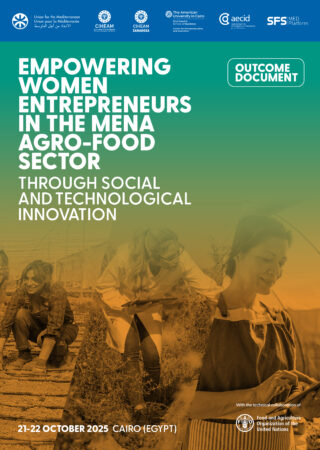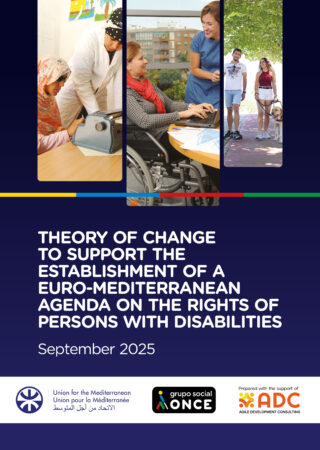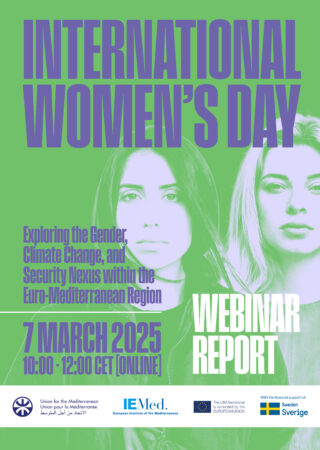
Promoting Women Empowerment for inclusive Sustainable Development in MENA
The project “Promoting women empowerment for Inclusive and Sustainable Industrial Development in the Middle East and North Africa region”, implemented by UNIDO and funded by the Italian government, seeks to enhance women’s economic inclusion and thus to create conditions for sustainable and inclusive growth in the MENA region by harnessing the great potential of women entrepreneurs in Egypt, Jordan, Lebanon, Morocco, Palestine and Tunisia. The project is in line with the newly adopted Sustainable Development Goals (SDGs), namely SDG 1: “End poverty in all its forms everywhere”, SDG 5: “Achieve gender equality and Empower all women and girls”, SDG 8: “Promote sustained, inclusive and sustainable economic growth, full and productive employment and decent work for all”, SDG 9: “Build resilient infrastructure, promote inclusive and sustainable industrialization and foster innovation” and SDG 16: “Promote peaceful and inclusive societies for sustainable development, provide access to justice for all and build effective, accountable and inclusive institutions at all levels”. The project’s rationale arises from the fact that the region registers the largest gender gap in entrepreneurship in the world (OECD 2014). In fact, while women own and manage 31 to 38 percent of all businesses at worldwide level, in MENA countries they make up around 13 (ILO 2015) to 15 percent (WB 2013) of those who are self-employed. There are no standardized national data allowing comparisons of women entrepreneurship in the six targeted countries, but in 2013 it was estimated that the percentage of firms with female participation in ownership in the MENA region was 22.7 percent, compared with an overall of 35.2 percent worldwide. In the six countries, the percentages were as follows: Egypt, 16.1 percent; Jordan, 15.7 percent; Lebanon, 43.5 percent; Morocco, 31.3 percent; West Bank and Gaza, 12.6 percent; and Tunisia, 49.5 percent. These country figures fall to 7.1 percent, 2.4 percent, 4.4 percent, 4.3 percent, 1.2 percent and 8.5 percent, respectively, for firms having a female top manager.
Author: Union for the Mediterranean
September 2017




